Company cars a liability?
When it comes to offering your staff company cars, traditionally a common drawback has been that they create more personal tax liability than they save on the company’s corporation tax bill, meaning many employees choose to opt out of having one altogether.
This is because employees taking company cars are liable to pay ‘Benefit in Kind’ (BiK) tax to reflect the monetary value of this perk.
Whilst this varies depending on the vehicle, it could be more cost-effective for employees to use their own car and claim back the mileage instead.
This meant dwindling take-up and companies missing out on the benefits of offering company cars, namely attracting employees, deductible repair and maintenance expenses, capital allowance reliefs and reclaiming VAT (if purchasing), branding and reputation enhancement.
Are electric cars the answer?
However, electric cars are now causing companies and employees to reconsider their position on company cars and fleets. That is because there are favourable Benefit in Kind rates available for low emission electric vehicles, as well as tax reliefs for companies if purchasing them.
Electric cars favourable Benefit in Kind rates
For all fully electric cars on sale, the BiK rate is just 2% during the 2022/23 tax year at which it will remain during 2023/24 and 2024/25 (see table below). This compares to 37% at the opposite end of the emissions scale.
The table below shows the Benefit in Kind rates for vehicles with less than 50 g/km CO2 emissions for the current and next tax year, including Electric, Petrol and RDE2 Diesel.
| Vehicle CO2 emissions | BiK rate for cars registered before 6 April 2020 | BiK rate for cars registered after 6 April 2020 | ||||||
|---|---|---|---|---|---|---|---|---|
| 2021 – 22 |
2022 – 23 |
2023 – 24* |
2024 – 25* |
2021 – 22 |
2022 – 23 |
2023 – 24* |
2024 – 25* |
|
| 0 g/km | 1% | 2% | 2% | 2% | 1% | 2% | 2% | 2% |
| 1-50 g/km (electric range >130 miles) | 2% | 2% | 2% | 2% | 1% | 2% | 2% | 2% |
| 1-50 g/km (electric range 70-129 miles) | 5% | 5% | 5% | 5% | 4% | 5% | 5% | 5% |
| 1-50 g/km (electric range 40-69 miles) | 8% | 8% | 8% | 8% | 7% | 8% | 8% | 8% |
| 1-50 g/km (electric range 30-39 miles) | 12% | 12% | 12% | 12% | 11% | 12% | 12% | 12% |
| 1-50 g/km (electric range <30 miles) | 14% | 14% | 14% | 14% | 13% | 14% | 14% | 14% |
* Subject to confirmation via the Finance Bill
Company cars: How much does a company pay?
This is determined by the car’s ‘P11D’ value – the value of the car including VAT, options and the delivery fee – as well as its CO2 emissions. The company must declare this via a P46 (Car) form to HMRC each year.
Company cars: How much does an employee pay?
The Benefit in Kind (BiK) rate is determined by the BiK band the vehicle sits in, its P11D value, as well as your income-tax bracket. The following formula is used to calculate BiK tax: (P11D value) x (BiK band) x (income-tax bracket) = BiK tax. Read on to see an example of this in practice for a electric vs petrol vehicle.
Benefits in Kind Comparison: Electric vs Petrol
We thought that it would be useful to show an example of how the Benefit in Kind rates work in practice. The below example is based on a higher rate taxpayer buying an electric Tesla Model S versus a petrol Mercedes S 450 after April 2020.
| Vehicle | Tesla Model S Performance | Mercedes S 450 L AMG Line |
| P11D Value (approximate list price at the time of writing (23/09/2019) with no separate delivery fee | £90,000 | £90,000 |
| Emissions | 0 gCO2 /km | 169 gCO2 /km |
| 2021-22 monthly BiK cost @40% tax rate | £30.00 per month (@1% BiK rate) |
£1,100.00 per month (@37% BiK rate) |
| 2022-23 monthly BiK cost @40% tax rate | £60.00 per month (@2% BiK rate) |
£1,100.00 per month (@37% BiK rate) |
| 2023-24 monthly BiK cost @40% tax rate | £60.00 per month (@2% BiK rate*) |
£1,100.00 per month (@37% BiK rate) |
* Subject to confirmation via the Finance Bill
Further reliefs available for companies who purchase rather than lease their fleet
Whilst cars do not qualify for the annual investment allowance (AIA), the cost of acquiring any commercial vehicles can be claimed under the AIA, so it is important to determine whether a vehicle qualifies as a commercial vehicle for tax purposes. The AIA cap is £200,000 for purchases made from 1 January 2022.
For companies planning to purchase rather than lease their fleet there is also the added benefit that they qualify for a 100% first-year allowance (FYA) if CO2 emissions do not exceed 0g/km and the car is purchased new and unused (as per section 45D of the Capital Allowances Act 2001 (CAA 2001)). This effectively gives full tax relief to companies on the cost of the car in the year of its purchase and means that a £35,000 investment in an electric vehicle would yield a £7,000 saving in tax relief for your company.
There are also other benefits of ‘going green’ (including reduced road tax, being exempt from the Ultra Low Emission Zone (ULEZ) and congestion charges and a Plug-in Grant of up to £3,500), so it is clear why companies are beginning to look at electric car as a viable option for their fleet.
What about company vans?
A similar 100% FYA applies for zero emission vans, where the vehicle is purchased new and unused before 1 April 2021, or 5 April 2021 for income tax (as per section 45DA of the CAA 2001). However, as all commercial vehicles already qualify for 100% relief under the Annual Investment Allowance (AIA), this special FYA for zero emission goods vehicles is not needed by the majority of businesses.
Furthermore, there are government grants available, including the Plug-in Van Grant worth up to 20% towards the purchase price up to £8,000.
There is further information available on the Plug-in Grant for cars and vans on the .Gov website.
Concerns about going electric
Some of the key concerns of moving to an electric fleet include range, charging and purchase cost, so it is worth exploring the specifications of your chosen vehicles in more detail with the retailer or leasing company prior to making your decision.
Contact us
Our tax team provides a full range of tax planning advisory services for businesses and individuals. We also provide a P11D service to look after your reporting of staff Benefits in Kind. Please contact us to discuss your requirements and for a quotation.

Ammad provides personal taxation planning, advisory and compliance services.


